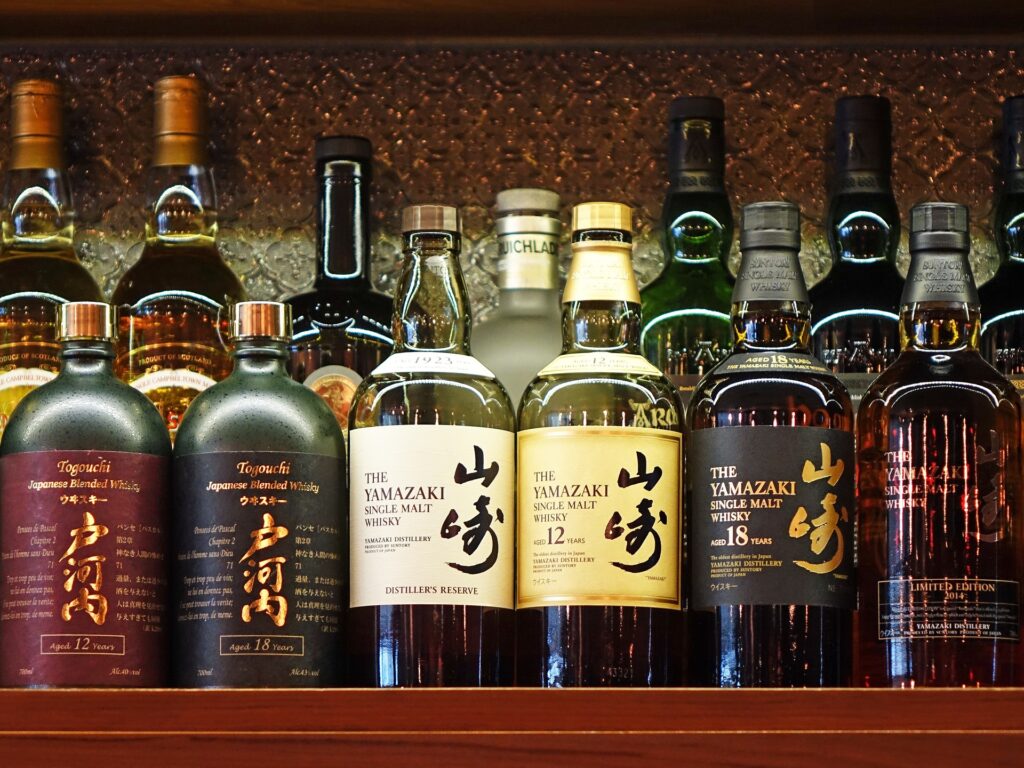Whisky, or whiskey, is a distilled spirit that has been enjoyed for centuries. Its popularity has led to a diverse range of types, flavors, and ages, each with its unique characteristics.
One question that often arises among those new to whisky is whether older whisky is more expensive than younger whisky. You’ll often see the age stated on whisky bottles but what effect does this have on the price?
The answer is not straightforward and requires an understanding of the factors that influence the price of whisky. Let’s take a look at them in a little more detail.
Is Older Whisky More Expensive?
Ageing Process and its Effect on Price
The ageing process is one of the critical factors that determine the price of whisky. Most whiskies are aged in oak barrels, which imparts flavors and aromas to the spirit over time.
The longer the whisky is aged, the more pronounced and complex these flavors and aromas become. As a result, older whiskies are often considered to be of higher quality and command a premium price.
However, the ageing process is not the only factor that affects the price of whisky. The cost of production, including ingredients, labor, and packaging, also plays a significant role in determining the final price.
Additionally, the rarity and demand for a particular whisky can significantly impact its value. There are other factors too as the rate of maturation can change depending on atmospheric conditions. Therefore, a 12 year old whisky in one location may have matured more quickly than a 12 year old whisky in another.
Rarity and Demand for Whisky
Rarity and demand are two of the most significant factors that drive up the price of whisky. Some whiskies are produced in limited quantities, making them highly sought after among collectors and enthusiasts. For example, the Macallan 1946, which was sold for over $460,000 at an auction, was one of only 40 bottles produced.
Another factor that contributes to the demand for whisky is its reputation. Certain brands and distilleries have built a reputation for producing high-quality whiskies that are highly sought after by enthusiasts. For example, Japanese whiskies have gained popularity in recent years and have commanded high prices at auctions.
Whisky Age Statements
One way that distilleries communicate the age of their whisky to consumers is through age statements.
An age statement is the number of years a whisky has been aged in oak barrels. For example, a bottle of whisky with an age statement of 12 years has been aged in oak barrels for at least 12 years.
Age statements can also impact the price of whisky. A whisky with a higher age statement is often considered to be of higher quality and therefore commands a premium price.
However, it’s important to note that not all whiskies have age statements, and some may have non-age statements like “No Age Statement” (NAS), which can be a blend of whiskies of various ages.
The Value of Whisky
The price of whisky is influenced by a variety of factors, including the ageing process, production costs, rarity, demand, and reputation. While older whiskies are often considered to be of higher quality, they are not always more expensive than their younger counterparts.
The value of whisky ultimately depends on its unique characteristics, including flavor, aroma, and history. Whether a whisky is worth its price is a subjective matter, and ultimately it’s up to each individual to determine its value based on their preferences and budget.
The Bottom Line
Ther bottom line is that older whiskies are generally more expensive than their younger counterparts. If there are two whiskies from the same distillery, then the older whisky will almost certainly be more expensive.
However, it’s not uncommon for a 15 year old whisky to be cheaper than a 12 year old whisky due to the factors we’ve looked at above. So while older whiskies are often more expensive, this isn’t always the case.
